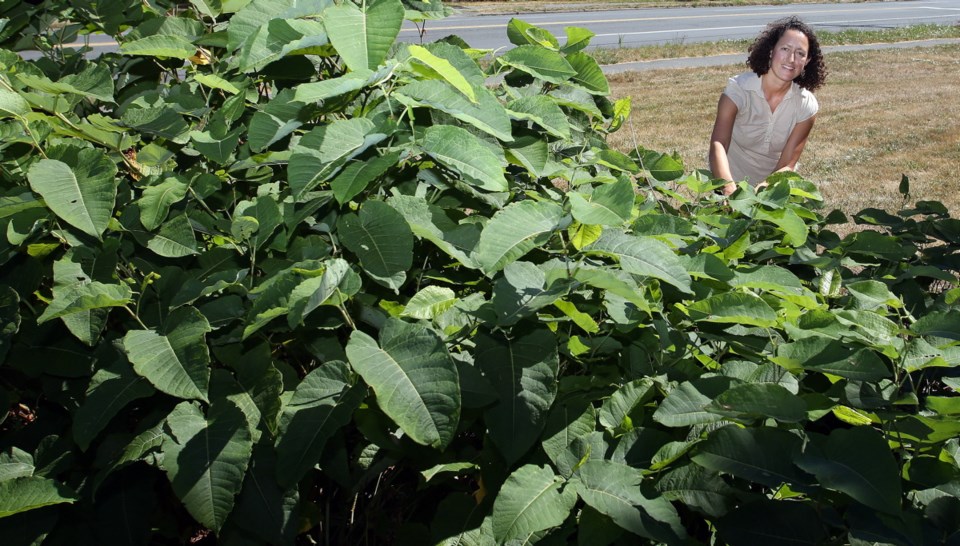A highly successful program aimed at eradicating a pesky invasive plant has returned this summer to the capital region.
The regional knotweed control program has been running for the past two summers. It includes a free service where stems of the plant are injected with herbicide by professionals.
Knotweed is large, hollow-stemmed shrub that can grow through 1.2 metres of concrete and reproduce from fragments. In other areas, knotweed has destroyed the foundations of buildings and roadways.
The reporting system is allowing biologists to get a better idea of how widespread the knotweed infestation is here, said Rachelle McElroy, executive director of the Capital Region Invasive Species Partnership.
Don’t try to remove the plant yourself. Cutting, mowing and pulling the plant stimulates it to grow further. The injected herbicide is having a better success rate than mechanical removal, McElroy said.
CRISP treated 67 sites in 2012 and 127 in 2013. As awareness of the problem is growing, more people are calling on experts to remove the plant.
It can be controlled if enough people are aware of the risks of its spread, McElroy said. Knotweed can spread by neighbours sharing cuttings because its attractiveness is deceiving.
Most sightings have been in Saanich, where there are more resources to control knotweed, she said. It has been spotted in all CRD municipalities except the Highlands.
People are discouraged from dumping the plant along rivers because it’s illegal to use herbicides there, McElroy said. There’s knotweed along the Cowichan River, which is a pesticide-free zone. There’s a push for the province to approve a herbicide that’s safe to use along waterways.
CRISP wants people who suspect they have knotweed on their property to get in touch. Email [email protected] or call 250-857-2472.
• For more information, go to knotonmyproperty.com and coastalisc.com



